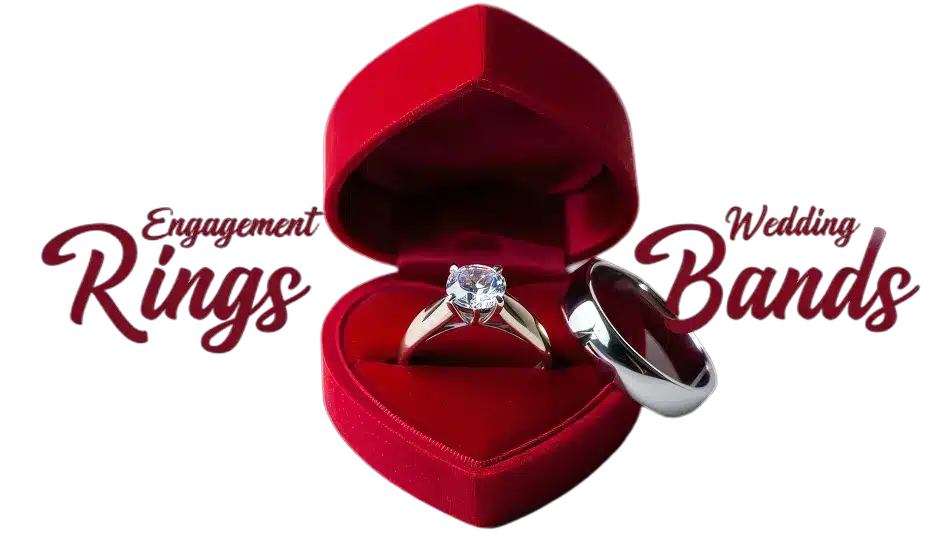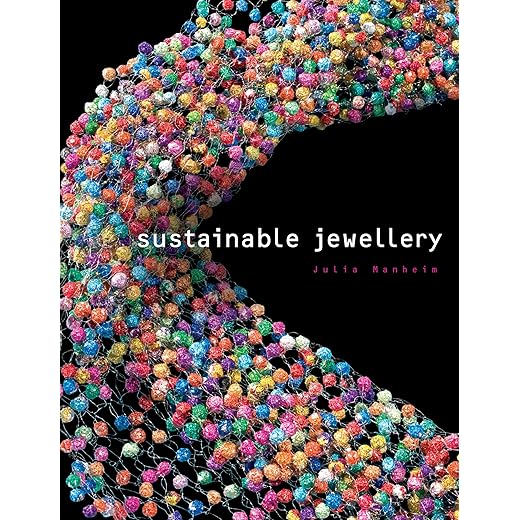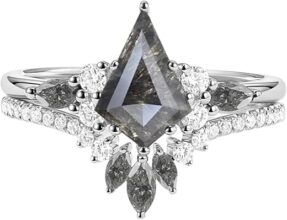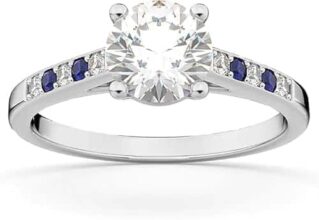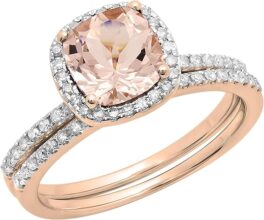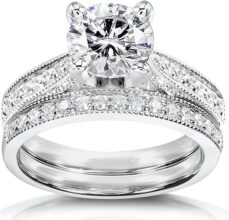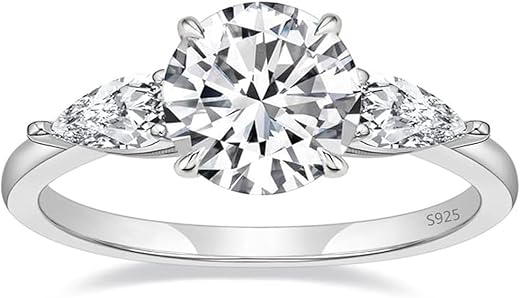
Setting the Stage for Ethical Choices
In today’s world, making conscious choices is more important than ever. When it comes to ENGAGEMENT RINGS, understanding the concept of ethical sourcing can significantly impact both your purchase and the wider world. You want your ring to symbolize love, but it can also reflect your values.
What does that mean for you? It’s all about choosing options that are considerate of the environment and the communities impacted by the mining and production of gemstones. This article will guide you through everything you need to know about shopping with a conscience.
From the impact of conflict diamonds to exploring ALTERNATIVE GEMSTONES, we’ll give you the tools you need to make informed decisions. Together, let’s discover how your choices can create a positive change in the world, one engagement ring at a time.




What Does Ethical Sourcing Mean?
When you hear the term ethical sourcing, think of it as a commitment to procure materials in a way that respects both people and the planet. In the jewelry industry, this principle is vital since it ensures that the gemstones and metals used in your engagement ring come from sources that prioritize sustainability, fair labor practices, and environmental responsibility.
A Holistic Perspective
Ethical sourcing encompasses a range of factors. It doesn’t just mean ensuring that diamonds are conflict-free; it also includes considering the working conditions of miners, the ecological impact of mining practices, and the traceability of materials. It calls for transparency in the supply chain, so you know exactly where your ring’s components come from and how they were processed.
Imagine a small family-owned mine in a remote village. By supporting ethical sourcing, you are not only helping to preserve the environment but also contributing to the livelihoods of the miners who depend on fair wages and safe working conditions. By choosing ethically sourced materials, your engagement ring becomes more than just a beautiful piece of jewelry; it transforms into a story of empowerment and resilience.
Why It Matters
Choosing ethically sourced stones and metals matters for various reasons:
In a world that increasingly values transparency and sustainability, consumers like you are becoming more discerning. You have the power to influence businesses and change practices simply by making informed choices about where and how to shop.
As you navigate this journey toward finding the perfect engagement ring, it’s essential to be aware of the broader impact of your choices. The next section will delve into a crucial topic: the impact of conflict diamonds, shedding light on why your awareness of sourcing matters even more in today’s jewelry market.
The Impact of Conflict Diamonds
When selecting your engagement ring, it’s crucial to be aware of the dark history associated with conflict diamonds, often referred to as blood diamonds. These are diamonds mined in war zones and sold to finance armed conflict against governments—often contributing to human rights violations and societal devastation. Understanding the impact of these diamonds is key to making a conscious purchase.
The Human Toll
Conflict diamonds have a profound effect on communities and nations. These gems can fuel violence, drive poverty, and perpetuate cycles of suffering. For instance, in countries like Sierra Leone, diamonds became synonymous with brutal civil wars where innocent lives were lost, and families were torn apart. The revenue generated from the sale of these diamonds has historically funded horrific acts, leaving lasting scars on the affected regions.
Identifying Ethical Sources
So, how can you ensure that your precious gemstone is not tainted by conflict? Here are a few steps you can take:
- Research the Origin: Ask jewelers about the source of their diamonds. Reputable sellers should be able to provide information about where their diamonds were mined and the conditions under which they were obtained.
- Seek Certification: Look for diamonds that come with a certification from a recognized authority, like the Kimberly Process, which aims to prevent the trade of conflict diamonds by requiring that sellers provide proof that their diamonds are conflict-free.
- Consider Traceable Diamonds: With advancements in technology, some companies now offer traceable diamonds—gems whose origins can be tracked back to specific mines. This adds an extra layer of assurance regarding ethical sourcing.
- Opt for Lab-Grown Diamonds: These diamonds have the same physical and chemical properties as mined diamonds, but they are created using sustainable practices that eliminate the risk of supporting conflict.
This brings us to an appealing alternative: lab-grown diamonds and lab-created options like cubic zirconia. Not only are these options often more affordable, but they also provide a guilt-free way to showcase your love without supporting unethical practices.
A Path Towards Change
By making mindful choices and opting for diamonds that are ethically sourced, you play a significant role in promoting positive change in the industry. Every purchase sends a message to jewelers and miners alike that conscious consumerism matters.
As you contemplate your options, remember that your decisions can reshape the narrative around diamonds and engagement rings. In the next section, we’ll explore alternative gemstones, offering even more sustainable choices for your special moment.
Alternative Gemstones: A Sustainable Choice
As you examine the world of engagement rings, consider looking beyond traditional diamonds to explore beautiful alternative gemstones. These stones not only serve as stunning options but can often be ethically sourced or lab-created, providing a guilt-free selection for your special moment.
The Beauty of Alternatives
Did you know that gemstones such as sapphires, rubies, and emeralds can be dazzling substitutes for diamonds? Here are a few reasons to embrace these alternatives:
Popular Alternatives to Diamonds
Here are some dazzling alternatives to diamonds that you might consider:
- Moissanite: Known for its high refractive index, moissanite is an excellent diamond substitute. It’s lab-created, ethically sourced, and even more brilliant than a diamond.
- Cubic Zirconia: Another popular choice, cubic zirconia is created in a lab and can be made in virtually any color. It’s an incredibly affordable option, perfect for fashion-forward couples.
- Lab-Created Diamonds: If you love the look of diamonds but want a sustainable choice, lab-grown diamonds are a stunning option that shares the same properties as mined diamonds but are produced in controlled environments.
- Aquamarine: This beautiful blue gemstone symbolizes calm and tranquility. It’s also a more affordable and unique option, standing out from traditional choices.
- Tourmaline: Available in a rainbow of colors, tourmaline can be a trendy alternative, offering personal expression and individuality.
The Significance of Your Choice
Choosing an alternative gemstone can allow you to align your engagement ring with your values. Each gem comes with its own story, whether it’s rich in color or ethically sourced. By selecting these options, you contribute to a movement that prioritizes ethical practices over the traditional diamond narrative.
As you explore the vast universe of gemstones for your engagement ring, consider the ethical implications and the variety that these alternatives bring to the table. In our next section, we’ll discuss certifications and labels you should look for when searching for ethical jewelers, helping you make even more informed decisions.
Certifications and Labels to Look For
When searching for an engagement ring with a conscience, knowing which certifications and labels to pay attention to can empower you to make informed choices. Understanding what these certifications mean will help ensure that your beautiful ring is ethically sourced and responsibly crafted.
Key Certifications to Know
Here’s a quick rundown of essential certifications and labels that can guide you in your hunt for an ethical engagement ring:
Navigating the Labels
As you explore your options, it’s essential to understand that not all labels are created equal. Here are a few tips for evaluating certifications:
- Ask Questions: Don’t hesitate to ask your jeweler about the certifications their products carry. Request to see documentation that supports their claims of ethical sourcing.
- Research the Company: Look for brands that are transparent about their sourcing practices and have clearly defined policies regarding labor and environmental impact.
- Seek Third-Party Verification: Check if the company has audit reports or independent verification regarding their practices. This can add an additional layer of trust to your purchase.
- Shop from Reputable Retailers: Find jewelers who specialize in ethical gemstones and have a reputation for quality and social responsibility. This often requires doing a little legwork, but it’s well worth the effort.
Your Action Plan
By familiarizing yourself with these certifications, you’ll feel more confident in your purchasing decisions. Whether you’re looking for a classic diamond or a unique gemstone, knowing how to identify ethical sources can transform your shopping experience.
As you arm yourself with this knowledge, you’re ready to take the next step in your quest for an ethical engagement ring. Up next, we’ll explore practical tips for finding ethical jewelers who align with your values, ensuring your purchase contributes positively to both people and the planet.
Tips for Finding Ethical Jewelers
Once you’ve educated yourself on ethical sourcing and the impact of conflict diamonds, it’s time to take action. Finding a jeweler who prioritizes ethical practices can sometimes feel daunting, but with a few strategies in your back pocket, you can navigate the landscape with confidence. Here are some practical tips to guide your search.
Start with Research
Like any big purchase, start by doing some research. Look for ethical jewelers in your area – or even online – who specialize in responsibly sourced materials. Here are a few methods to find them:
Ask the Right Questions
When you meet with a jeweler, don’t shy away from asking tough questions. Here are some examples to get you started:
Look for Transparency
A trustworthy jeweler will be open about their practices and sourcing. Look for signs of this transparency:
Support Local and Small Businesses
Supporting local, small-scale jewelers can make a significant impact. Many of these artisans prioritize ethical practices because they are fully invested in their communities. When you buy from local businesses, you’re often:
Utilize Gemstone Resources
If you’re considering alternative gemstones, research jewelers who specialize in these options. Ethical jewelers often provide details about the origin of their stones and may offer lab-created options, which can be excellent choices for ethically minded shoppers.
Ultimately, fostering relationships with jewelers who share your values can lead to a satisfying experience that extends beyond just your ring. As you prepare to seal the deal with your dream engagement ring, take pride in knowing you’re contributing to a more ethical jewelry industry.
With these tips in hand, you’re well-equipped to find a jeweler who aligns with your values. Your journey toward a meaningful engagement ring is just about to come together! In the next section, we wrap everything up and explore how making a conscience choice feels all the more rewarding.
Making a Conscious Choice
As you embark on the journey to find the perfect engagement ring, remember that your choice can have a positive impact. By prioritizing ethical sourcing, you not only discover a beautiful symbol of love but also contribute to a more sustainable and just world. Your decision to opt for conflict-free diamonds or alternative gemstones reflects a commitment to responsible consumption.
Take the time to research jewelers who share your values, and don’t hesitate to ask questions about their sourcing practices. By making informed choices, you empower not only yourself but also the communities behind the gems. Let your engagement ring be a testament not just to your love story, but to the conscious effort you’re making for a better tomorrow. Embrace this opportunity to wear a ring that truly represents what you stand for.
